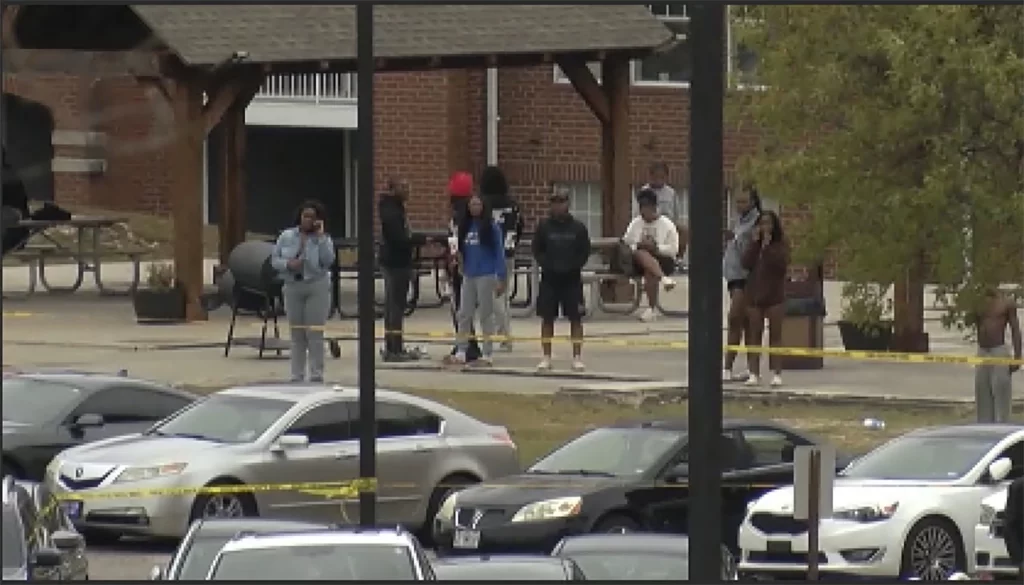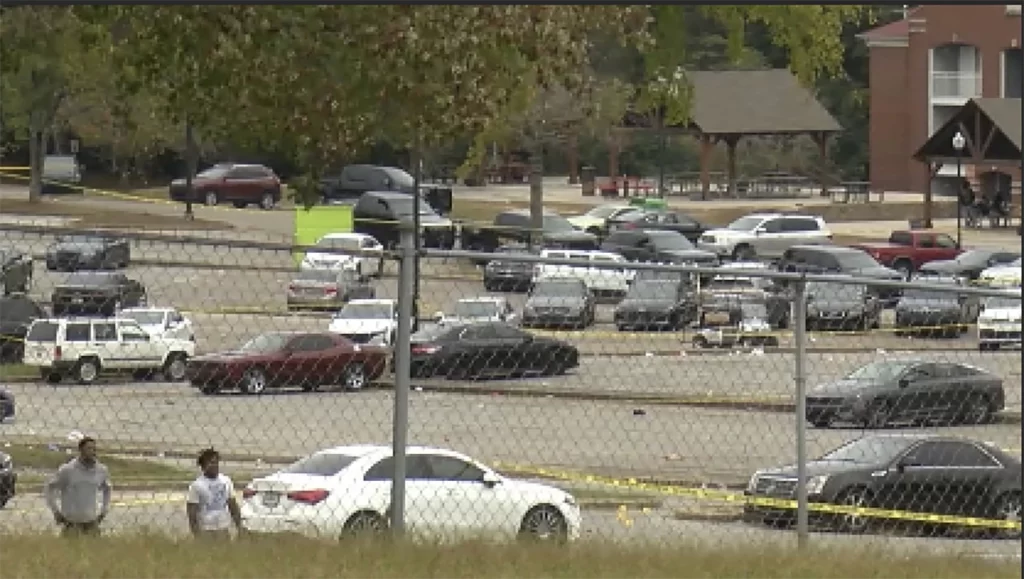A shooting in Alabama during Tuskegee University’s 100th Homecoming Week celebrations early Sunday left one person dead and 16 others injured, with authorities announcing the arrest of a Montgomery man found carrying a modified handgun.

Jaquez Myrick, 25, faces federal charges for possessing a handgun with a machine gun conversion device, the Alabama Law Enforcement Agency reported. Authorities discovered the weapon as Myrick left the scene but have not accused him of using it in the shooting or specified his connection to the university.
The violence claimed the life of an 18-year-old man who was not a student, while twelve others suffered gunshot wounds and four sustained injuries in the chaos. Several victims are being treated at East Alabama Medical Center in Opelika and Baptist South Hospital in Montgomery, according to university officials.
“Some idiots started shooting,” Tuskegee Police Chief Patrick Mardis told Al.com, describing a scene so crowded with people that emergency vehicles struggled to respond. Among the wounded were a female student shot in the stomach and a male student hit in the arm.
The historically Black university, located 40 miles east of Montgomery, canceled Monday classes and arranged for grief counselors at the university chapel. “This senseless act of violence has touched each of us, whether directly or indirectly,” said student government president Amare’ Hardee during Sunday’s homecoming convocation.

The FBI has joined the investigation alongside the Bureau of Alcohol, Tobacco, Firearms and Explosives, establishing an online portal for witness video submissions. Macon County Coroner Hal Bentley, who has served 37 years, told The Associated Press he couldn’t recall any previous homecoming shootings at the university.
The incident comes just over a year after four people were injured in a shooting at a Tuskegee student housing complex during what officials described as an “unauthorized party” in September 2023.
“We will get through this together because in tough times, tough people band together and they survive,” said Norma Clayton, chairwoman of the board of trustees, addressing Sunday’s convocation service at the university, which became the first historically Black college designated as a Registered National Landmark in 1966.



